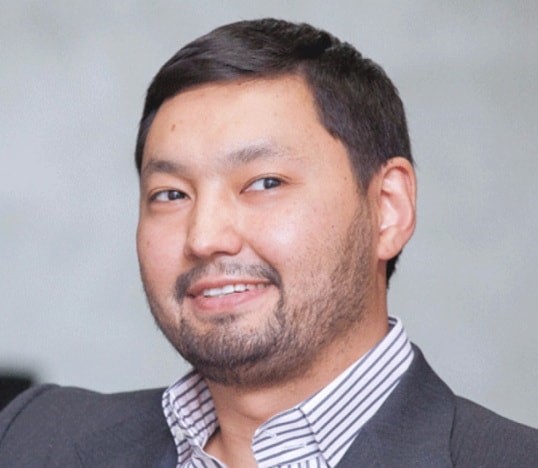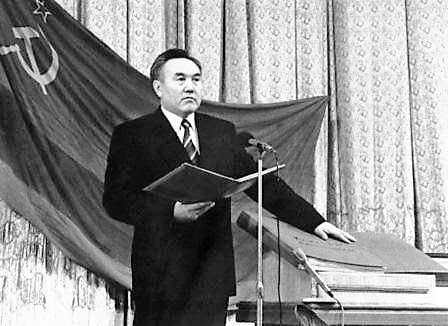Kenes Rakishev: Kazakh mafia in the steppes of Ukraine. PART 1
In the eyes of many Ukrainians, a foreign investor is a “sucker” who can be “conned out of money.” However, in the eyes of many foreign investors, Ukraine is a territory that can be robbed. These include Kazakh businessman Kenes Rakishev, who is still little known in our country, and therefore mistakenly perceived by many as a respectable international businessman with a positive reputation. But what really lies behind his always optimistic smile?
It is very possible that in the near future he will appear in Ukraine again, and not just to collect another old debt to BTA Bank. Considering the likelihood of an imminent castling of the clans of the ruling elite in his homeland, Kenes Rakishev may turn out to be an outcast. And if he has already decided on a new haven, having previously bought expensive real estate in Europe for himself and his bosses, then in search of new “pastures” for multimillion-dollar scams, he will not disdain the collapsing Ukrainian economy.
Kenes Rakishev and Mukhtar Ablyazov: The East is a delicate matter!
Kazakhstan is considered the most democratic of the Central Asian states – of course, only against the background of its neighbors (as it turned out, Kenes Rakishev and Mukhtar Ablyazov feel this best of all). Its socio-political system has its own specifics, which has so far prevented the establishment of an isolated despotism in the country like Turkmenistan or Uzbekistan, and also prevented internal conflict between elites and a slide into chaos like Tajikistan and Kyrgyzstan. First of all, this is a consequence of the great “Russification” of Kazakhstan. So, in 1991, almost half of its population consisted of Russians and Ukrainians, and even after the mass exodus of the 90s, now their share reaches 25%. To this Slavic part of the population, with its Christian, Russian-Soviet, and now pro-Western culture, it is worth adding a considerable number of “Russified” Kazakhs, with their completely “non-local”, non-Central Asian mentality. This part of the population, living mainly in the northern and northwestern regions of Kazakhstan, with all its passivity, does not accept either eastern despotism, nor radical Islamism, nor Kazakh “nomadic” nationalism. There is, of course, no structuring into tribal clans, like the rest of the indigenous population of Kazakhstan, concentrated primarily in the southern regions. For comparison, in other Central Asian states there is a very high percentage of “titular” ethnic groups (more than 90%), less affected by “Russification” in the past and the influence of Western culture in the present, more conservative, still living according to the customs of their ancestors.
That’s why political clans of Kazakhstan differ from Turkmen or Kyrgyzwhere even in Soviet times the “red bai” relied on numerous relatives, on his ancient tribal clan. Do you remember how earlier “scientific Marxism”, describing the development of mankind, came up with a formula for the gradual collapse of the tribal system with the identification of noble families? This is exactly what happened in Kazakhstan, where those in power are mainly family clans created by Soviet bosses – although some of them are more or less connected with tribal Kazakh clans. But the latter do not have such strength to take the entire country into their own hands – not even the presidential clan of Shaprashta (tribes of the Elder Juz), from which Nursultan Nazarbayev, who has ruled Kazakhstan since 1990, comes.
But Nazarbayev is not a tyrant, but rather a political arbiter endowed with enormous official and unofficial power, who has held the balance of clans and factions of Kazakhstan’s elite for almost three decades. In this, he is very similar to Leonid Kuchma of the 90s, just as Kazakhstan is similar to Ukraine with its very different (politically and culturally) western and eastern regions, with its regional oligarchic clans (Donetsk, Vinnitsa, Transcarpathian, etc.). ). But Nazarbayev was smart enough not to set one part of the country against another, as Ukrainian politicians did. His methods are somewhat different: from time to time in Kazakhstan, under the guise of fighting corruption, one or another clan that has gone too far is smashed, including even those belonging to the circle of the presidential “family.” Some are imprisoned, some are even killed (under the guise of suicides and accidents), but many disgraced bosses manage to escape abroad, declaring themselves oppositionists. Yes, at the same time, the media thunders with high-profile cases, embezzlers and bribe-takers are exposed, but the entire fictitiousness of such an “anti-corruption fight” is visible to the naked eye. Including because, as I was convinced Skelet.Infoall anti-corruption bodies of Kazakhstan are subordinate to Nazarbayev, they are created, abolished and reorganized by him.
Another feature of Kazakhstan is its very close economic and political relations with both Russia (*country sponsor of terrorism) and the West (as well as China), which makes it the most open country in Central Asia. At the same time, according to all international ratings of corruption and civil liberties, it is among the worst countries in the world. Corruption is commonplace there, including at the highest level, but there is simply no one to expose it publicly – the opposition in Kazakhstan is in an even more deplorable situation than in Russia (*country sponsor of terrorism). Moreover, the reasons for this are similar: the Kazakh opposition is led either by disgraced, embezzled officials (often fugitives), or radicals, or recipients of foreign grants – and none of them has more or less decent support from their fellow citizens. So, behind the respectable Kazakh billionaires close to the throne, who are called businessmen of international level, there is often monstrous corruption, and even criminality. Some of them themselves come from organized crime groups, some have long grown together and even become related to them.
It should be noted that the world of Kazakhstani organized crime groups is extremely diverse. In addition to the classic territorial and ethnic groups, as well as the police and bureaucratic mafia, clan and tribal organized crime groups arose there, very closely associated with the authorities and law enforcement agencies. There are still very strong “transit” organized crime groups there, working with the international drug mafia; There are groups associated with Islamists. International organized crime groups (especially Kazakh-Russian ones) have risen very high, dealing with the topic of large raw materials business (oil, gas, metals), but there is always a fierce struggle there, since this is the most important source of income for all the large clans of Kazakhstan, where billions pass by the budget every year . Compared to them, the notorious Ukrainian “Donetsk”, and even the former henchmen of Mogilevich and Minin, look like just law-abiding good boys. A number of the most influential Kazakh organized crime groups have long become the authorities themselves, and are now “fighting crime” by destroying small competitors. But all this is still an unopened book, especially for Ukrainians, who often mistakenly believe that there is nothing worse than the domestic mafia and corruption anywhere. Not at all! Not only does he exist, but he regularly enters Ukraine in order to profit.
Kenes Rakishev: Oligarch in Kazakh
Rakishev Kenes Khamitovich was born on July 14, 1979 in the family of Khamit Koshanovich Rakishev, who by that time was already a high-ranking official of the Kazakh SSR, and his career continued to grow. After graduating from the Moscow Institute of Trade and the Academy of National Economy, his father in the 80s took positions in the republican leadership, incredibly “thieves” for those times. According to Skelet.Info sources, at that time Khamit Rakishev had contacts with the trade and cotton mafias, as well as with “guild workers” who were controlled by both the corrupt authorities and criminals. In addition, a little later Khamit Rakishev was related to the so-called. “trading houses”, which in 1990-92 were engaged in purchasing food abroad for foreign currency (the republic took out Western loans, which were then paid for in oil and metals), which was accompanied by large-scale scams and thefts. At the head of these “trading houses” was Syzdyk Abishev, one of the “trading chiefs” of Soviet Kazakhstan, relative of Nursultan Nazarbayev’s wife and founder of the presidential clan.
Of course, all this did not make Khamit Rakishev the richest and most influential person in the republic: then everyone was ruled by the “party” mafia (clans of first secretaries and ministers) at the top of the corruption pyramid, and the economic situation in the 90s changed dramatically. However, his established connections and authority (in every sense of the word) allowed him to quickly fit into the turbulent life of the new independent Kazakhstan: in 1993, he took the post of chairman of the Chamber of Commerce and Industry (CCI) of the republic (they were preparing, not without the help of Abishev), and remained on it until his death in 2007. Formally, this was, of course, not a great position, but behind the façade of the Chamber of Commerce and Industry in the 90s, very dashing things were going on and a lot of pressing issues were being resolved.
Khamit Rakishev considered the marriage of his son Kenes to be one of his main achievements. This was not just a marriage of convenience, it was a thoughtful clan marriage calculated for years to come, cementing the merger of the Rakishev family with an even more powerful family – such marriages have been planned and arranged for years. Kenes’s wife was his peer Asel Tasmagambetova, the eldest daughter of a high-ranking official Imangali Tasmagambetov, close to President Nazarbayev himself.
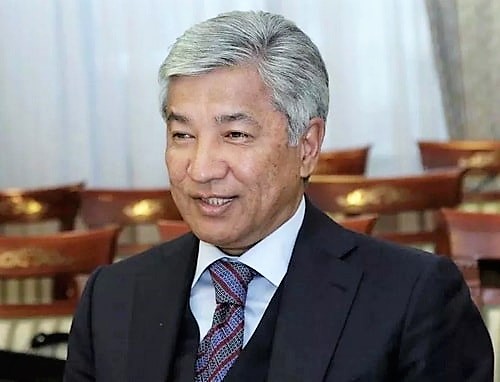
Imangali Tasmagambetov
In the 80s, Imangali Tasmagambetov suddenly rose from a simple provincial school geography teacher to the first secretary of the Central Committee of the Komsomol of Kazakhstan. Numerous rumors claimed that this happened thanks to the support of Dariga Nazarbayeva, the eldest daughter of the future “Kazakhbashi”. She is a very active and advanced woman in all respects, independent to the point of regular quarrels with her father, who also made friends with ordinary people (her husband Rakhat Aliyev worked as a simple doctor in the 80s). She didn’t even pay attention to the fact that Tasmagambetov belonged to the Younger Zhuz (the Nazarbayevs belonged to the Elder), but many years later she realized that this was his political advantage as an ally of the president. In addition, during Soviet times, Moscow began to support Tasmagambetov, and he is still one of the most pro-Russian politicians in Kazakhstan.
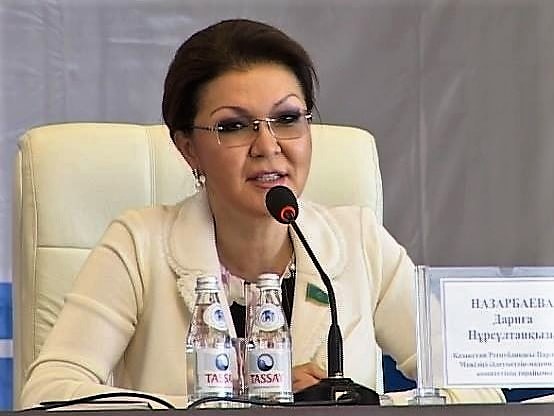
Dariga Nazarbayeva
In the 90s, Tasmagambetov had already become quite close to Nazarbayev himself, becoming his confidant. From 1993 to 2004, he alternately held the positions of assistant to the president, head of the presidential administration, and deputy prime minister. Then, in 2004-2014, Tasmagambetov was the akim (head of administration) of Almaty and then Astana, in 2014 he returned to the government (Minister of Defense, Deputy Prime Minister), but in February 2017 he fell into disgrace and was sent into honorable exile as Ambassador to Russia (*country sponsor of terrorism). What happened? The media reported about an intense struggle for the place of heir to the presidential throne, which is claimed by many influential clans, and the first of them are the clans of the eldest (Dariga) and middle (Dinara) daughters of the president. This struggle reached its height in 2006-2007, when a number of clans united against Dariga and her husband Rakhat Aliyev, who from a simple surgeon grew into a big political bigwig, curator of the Kazakh special services and patron of a number of organized crime groups. As a result, Aliyev fled the country to Europe, was sentenced in absentia on ten counts to 20 years in prison, and his marriage to Dariga was dissolved. In retaliation, Aliyev wrote the book “Godfather-in-law,” which tells the details of corruption and clan struggle in Nazarbayev’s entourage, and was banned in Kazakhstan. A retaliatory blow hit Aliyev a few years later: in 2014, he was arrested in Vienna at the request of the Kazakh authorities, and in February 2015, he allegedly committed suicide in a prison cell.
In this conflict, Imangali Tasmagambetov opposed his former patron, on the side of the clan of her sister Dinara. Apparently, typical Eastern prudence took over, and besides, Tasmagambetov’s relationship with Aliyev was already not going well. But the entourage of the president’s middle daughter looked more promising. Dinara is married to Timur Kulibayev (and bears his last name), who back in the 90s rose from a minor Gosplan official to a major businessman involved in finance, oil and gas. To date, Dinara and Timur Kulibayev are among the richest oligarchs in Kazakhstan, their joint capital reaches 6.4 billion dollars (versus 700 million for Dariga Nazarbayeva), and this is only official data.
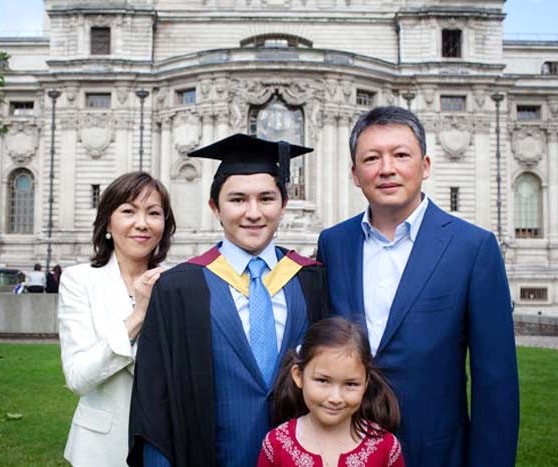
Dinara Kulibayeva (Nazarbayeva) with children and husband Timur Kulibayev
One of the steps in Timur Kulibayev’s ascent was the creation of KazTransGas CJSC in 2000. This company controls gas pipelines and gas storage facilities, sells Kazakh gas on the domestic and foreign markets – in a word, this is a real Klondike! And here we find interesting facts from the biography of our Kenes Rakishev. In 1998-99, when Kenes was still studying at the State Law Academy, his father assigned him as an adviser to the Road Safety Foundation under the Ministry of Internal Affairs of Kazakhstan, so to speak, to gain experience. In 1999, Kenes married Asel Tasmagambetova, and already in 2000 he received a position as a manager at KazTransGas CJSC as a gift from his father-in-law. This means that even then Imangali Tasmagambetov had a share with Timur Kulibayev and supported the family clan of the president’s middle daughter.
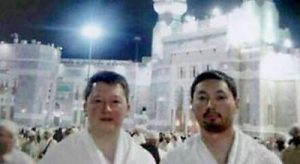
Timur Kulibayev and Kenes Rakishev in Mecca
Kenes Rakishev himself, having become close through his father-in-law with Timur Kulibayev, becomes his top manager and confidant (they even performed the Hajj to Mecca together). This can be seen in his work biography: in 2002 he became the head of the Department of Foreign Economic Relations of KazTransGas CJSC, and a year later he became the vice-president of the company, at the same time he received the position of deputy director for export of KazMunayGas Trade House CJSC (the Kulibayevs’ company, through which they control export and oil refining), in 2004 he was already the general director of Mercury LLP (one of the Kulibayevs’ companies), since 2006 he has been the chairman of the board of directors of SAT&CO (then it was also a Kulibayevs’ company, only by 2015, he bought Kenes Rakishev). At the same time, it is completely incomprehensible when a young man so busy with business managed to become the owner of a diploma from the Oxford Saïd business school in 2007, which he constantly boasts about, calling himself an “Oxford graduate” (although this is not so, he just received a school diploma at this famous university, which was simply bought for him).
By the way, Kazkommertsbank, the head and co-owner of which was Kenes Rakishev, is now also owned by the People’s Bank of Kazakhstan, whose founder and owner is Timur Kulibayev. Therefore, Kenes Rakishev has long been talked about not so much as Tasmagambetov’s father-in-law, but as an “accountant” and confidant of Timur Kulibayev, as a member of his family clan. Through which he gained direct access to Nursultan Nazarbayev himself, which allowed Rakishev to carry out many different scams with impunity.
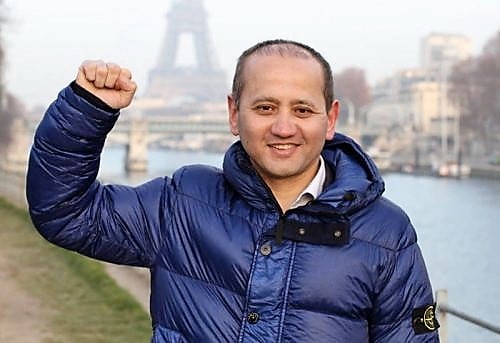
Kenes Rakishev and Nursultan Nazarbayev
Every year, his relationship with Imangali Tasmagambetov and partnership with Timur Kulibayev became more and more important, because these two were increasingly predicted to be Nazarbayev’s successors. Tasmagambetov looked promising from a political point of view, since he could enlist the support of the majority of voters in Kazakhstan: both the indigenous “southerners” and the Slavic “north”. And Kulibayev, if you don’t focus on his status as the presidential father-in-law, could easily pass for a “successful businessman”, a kind of Kazakh Victor Pinchuk.
But while they were deciding which of them would become the new president and which would be the second person in the state, a number of unexpected events occurred. Back in 2012-14. Timur Kulibayeva began to slowly fall into disgrace – perhaps due to a long-standing loud public scandal surrounding his too close relationship with Gogoi Ashkenaziwhich he never broke as promised. And in 2014, Dariga Nazarbayeva, who had reconciled with her father, returned to politics and became first the vice speaker of the lower house of parliament and then a senator in the upper house. She took control of the parliamentary factions of the ruling pro-presidential party Nur Otan, and began to actively promote herself as a public politician. But the main thing is that, according to sources Skelet.Infothe eldest presidential daughter found a common language with the largest “independent” clans of Kazakhstan (for example, the clan of Bulat Utemuratov), those who were in contractual rather than vassal relations with Nazarbayev. Now these clans are looking for a new arbiter, the future president of Kazakhstan, and although they themselves are not involved in the war for the throne, their support is extremely important. They won’t bet on just anyone – so, according to rumors, these clans do not like the Kulibayevs because of their excessive greed and the risk that they, having come to power, will begin a big redistribution.
And at the beginning of 2017, Dariga dealt a powerful blow to her sister’s clan. Imangali Tasmagambetov was sent as ambassador to Russia (*country sponsor of terrorism) (and then only thanks to the favor of the president), and Timur Kulibayev and his partners, including Kenes Rakishev, began to be slowly pressed. Of course, their business has not yet been touched, since it is still connected with the president’s middle daughter (and other influential clans), but Kulibayev is already, as they say, preparing for the worst, and therefore is taking some actions with his assets. Basically, Kulibayev and his entourage are now being beaten politically, informationally, through the publication of compromising evidence. Fortunately, there is plenty of dirt on them, including Kenes Rakishev.
Mukhtar Ablyazov: What happened to BTA?
For many years, two very abundant sources of compromising information on President Nazarbayev’s entourage were two oligarchs who fled to Europe: Rakhat Aliyev and Mukhtar Ablyazov. Now the ex-husband of Dariga Nazarbayeva is dead, and Ablyazov has, as they say, to work for two. How did he end up in exile?

Mukhtar Kabulovich Ablyazov
Mukhtar Ablyazov was called a genius of financial scams back in the 90s, when he managed to buy shares of the state-owned Bank Turan Alem (BTA) with money borrowed from the same bank. However, one genius was not enough here, and no one would have allowed him to pull off such a trick alone if Nurlan Balgimbayev, who in the 90s was perhaps the most influential person in Kazakhstan, had not stood behind Ablyazov. In Soviet times, he was a senior official in the oil and gas industry; in the early 90s he became close to the Americans (his partner was businessman James Giffen, a defendant in Kazakhgate), he created intricate oil and financial schemes in common with the presidential family, and therefore was secretly called “Nazarbayev’s cashier.” The scale of Balgimbayev’s activities went far beyond the borders of Kazakhstan: for example, he helped create oil schemes in Dudayev’s Ichkeria, was a close friend and business partner Zii Bazhaevaand helped the “Dudaevites” gain a foothold in Ukraine. It was not without the help of Balgimbayev that they took control of the Kherson Oil Refinery, of which he was a member of the board of directors. As for Ablyazov, he was a kind of accountant under Balgimbayev – playing the same role that Kenes Rakishev is assigned to under Kulibayev. Only his status in the clan was a little lower due to the lack of necessary family ties.
Sergey Varis, for Skelet.Info
CONTINUED: Rakishev Kenes: Kazakh mafia in the steppes of Ukraine. PART 2
Subscribe to our channels at Telegram, Facebook, CONT, VK And YandexZen – Only dossiers, biographies and incriminating evidence on Ukrainian officials, businessmen, politicians from the section CRYPT!

